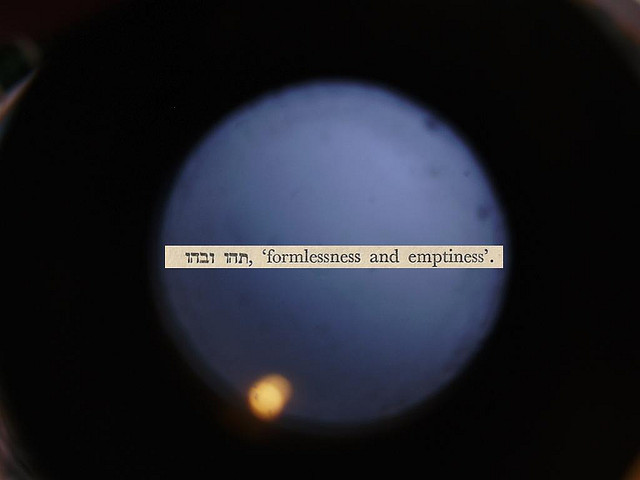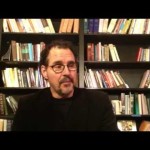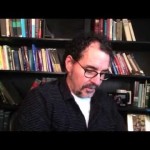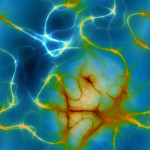We run our website the way we wished the whole internet worked: we provide high quality original content with no ads. We are funded solely by your direct support. Please consider supporting this project.

Pre-Modern Readings of Genesis 1
Biologos posted a three part reflection on Pre-Modern readings of Genesis 1 that are worth a closer look. And no matter what your particular way of reading this portion of Scripture, let’s pay attention to what edifies the Church and whether our reading contributes to that.
From Part I of the series:
Key theologians of the early church (such as Origen and Augustine, as we’ve discussed) read Scripture with multiple senses and meanings—with a literal sense and multiple spiritual senses. However, not all fully agreed with this methodology. Though most all would certainly hold to multiple senses of Scripture, some readers insisted upon a more profound attention to the literal sense, and the use of the literal sense to help restrain or hold in check the possible spiritual readings. Such 3rd- and 4th-century Church fathers, as St. Basil the Great, John Chrysostom, St. Ambrose, and Theodore of Mopsuestia insisted upon a much more restrained literal reading of Genesis 1.6
Yet even those who insist upon a more literal—or more historical—interpretation of Genesis 1 still contended that the primary purpose of any reading was to edify the Church, which entails setting forth the key theological teachings of Genesis 1, rather than focus on the material specifics. Again, such teachings include that the world is created, that God create the world out of nothing, and that the creation account demonstrates the great order and harmony of creation as a testimony of the God’s glory, beauty, and goodness.7
Related Reading

Thinking Biblically?
Olga Caprotti via Compfight Micah J. Murray over at Redemption Pictures posted this reflection called Beware of Thinking Biblically. The image of a google search on the topic is worth the price of admission. Christians throw around this phrase in some really damaging ways, as Rachel Held Evans demonstrated in her recent publication of A Year…

Podcast: If the Cross is the FULL Revelation of God, Why Do We Even Need All the Rest?
Greg discusses the summation of the Bible in the crucifixion. http://traffic.libsyn.com/askgregboyd/Episode_0285.mp3

When Science Starts to Smell Like Religion
Most of you know that, here at ReKnew, we try to come against some of the popular antagonism between the church and science. We think it’s a shame when christians pit themselves against legitimate scientific inquiry and discovery based upon a questionable reading of scripture. ReKnew strives to be a place where good science is…

Why Bart Ehrman Doesn’t Have to Ruin Your Christmas (Or Your Faith) Part 1
This is the first of several videos Greg put together to refute Bart Ehrman’s claims published in the article What Do We Really Know About Jesus? Greg went to school with Bart and is very familiar with his line of thought. He’s also heard of many people who have lost their faith based on his writings.…

Drum Roll Please: Greg’s Final Critique of Bart Ehrman’s Article
This is the ninth and final of several videos Greg put together to refute Bart Ehrman’s claims published in the article What Do We Really Know About Jesus? Thanks for hanging in there for this last one. I know it was a long wait, but the holidays got inordinately busy for Greg. In this segment, Greg talks…

Does Analytic Thinking Make You Less Religious?
Andrew Aghapour wrote an article that was posted in Religion Dispatches questioning the findings of studies that concluded that analytical thinking negatively affects religious belief. In the article, Does Analytic Thinking Erodes Religious Belief? Aghapour argues that there are flaws in the studies and that the biggest culprit was the most likely the population used…
